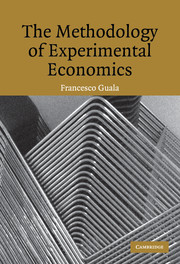1 - Introduction
Published online by Cambridge University Press: 10 December 2009
Summary
On October 9, 2002, the news began to circulate that Daniel Kahneman and Vernon Smith had been awarded the Bank of Sweden Prize in Economic Sciences in Memory of Alfred Nobel. The prize was not entirely unexpected. For a few years, the names of prominent experimental economists had been in the list of plausible Nobel candidates, and everybody agreed that it was just a matter of time. Yet, for the community of experimenters, the event was epoch making: laboratory work was recognized officially as one of the most important advancements in the last half century of social science.
This wasn't the first time that the Nobel Prize had been assigned to the proponents of doctrines or approaches that do not enjoy universal acceptance within the profession. And economists like Maurice Allais, Herbert Simon, and Rheinhard Selten, who had contributed in many ways to the birth and development of experimental economics, already figured among the laureates. But Simon, Allais, and Selten had been prized for their work in other areas of economic theory, and the 2002 award constituted an innovation in at least two major respects. First, it recognized the work of a scholar who according to the conventions of contemporary academia should not be labeled as an “economist.” Daniel Kahnemann was prized “for having integrated insights from psychological research into economic science, especially concerning human judgment and decision making under uncertainty” (Nobel Press Release 2002).
- Type
- Chapter
- Information
- The Methodology of Experimental Economics , pp. 1 - 10Publisher: Cambridge University PressPrint publication year: 2005



